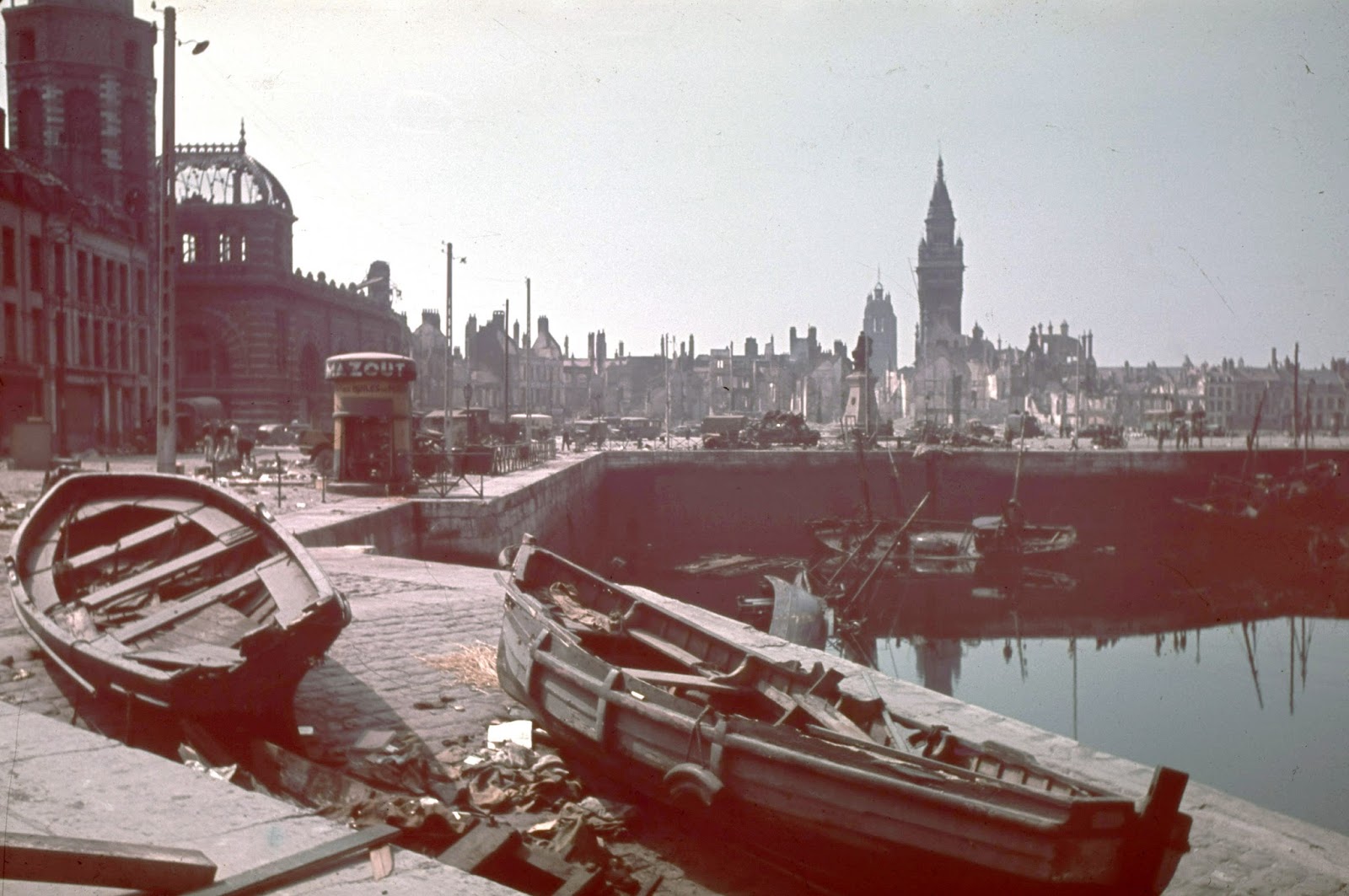
On the ground - especially after more than a decade of wall-to-wall propaganda from the schoolyard up, distorting the image of Hitler's Germany - this reality was not as immediately obvious. The dominant international view was and remains that the role of Germans in the war was that of the perpetrators, not the victims, after their country set in motion a global war that went on to claim an estimated 60 million lives and its forces exterminated 6 million Jews in the Holocaust.

His next major public stage would be the Nuremberg Trials and his conviction for war crimes in 1946. "On May 8, at 23:01, the guns will fall silent," Dönitz said. He alluded to his previous broadcast, on May 1, when he had announced Hitler's death and said his first priority would be "to save the lives of German people." To that end, he said, he'd asked the armed forces to agree to unconditional surrender. Meanwhile, the man who briefly succeeded Hitler that May, Admiral Karl Dönitz, issued a radio broadcast lasting barely 30 seconds. Everyone has tried." The exiled former and future French leader, Charles de Gaulle, also spoke of victory in his radio address, noting that France's military command was present for the signing of the capitulation. In all our long history, we have never seen a greater day than this.

Winston Churchill stood atop the roof of the Health Ministry in London before cheering crowds and proclaimed: "This is your victory! It is the victory of the cause of freedom in every land. It was the Allied leaders who delivered triumphant speeches to their people. Field Marshall Keitel signs the capitulation shortly after midnight local time on May 9 Image: picture-alliance/dpa It assured that in Moscow, one hour ahead of Berlin, the clocks would have ticked over to May 9, allowing the Soviets their own day on which to recall victory in what was known in the USSR as the Great Patriotic War. The strangely specific timing was no accident. The Allies eventually agreed that combat would officially cease as of 11:01 p.m., Berlin time, on May 8, 1945. He didn't even want his corpse to fall into enemy hands. Their newlywed corpses were burned and the ashes scattered near the so-called Führerbunker, Hitler's base of operations later in the war. By the time the already-fractious Allies had agreed on the form, timing and signing details of Germany's unconditional surrender at the end of the World War II, Berlin had been under the complete control of the Soviet Red Army for almost a week.Īdolf Hitler, terrified of the prospect of being captured alive or being held accountable for millions of murders, had married his partner Eva Braun and then the two died by suicide shortly before the Battle of Berlin was decided.


 0 kommentar(er)
0 kommentar(er)
